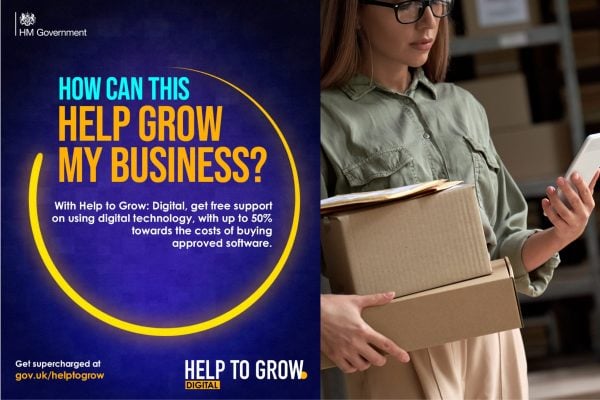There isn’t a marketplace seller out there, looking at that bill from eBay or Amazon every month, who doesn’t think about setting up their own independent webstore.
It’s a lovely prospect: a tailored website, freedom to sell without rules and fear of suspension and noone else taking a cut.
In the Tamebay Guide sponsored by XSellco we showcase a selection of opportunities when it comes to building your own online store. It’s something that should be on your to do list, but when do you start?
In terms of timing, it seems to me that the sooner you start the better. Lots of aspects of the process do just take time: building an email list, finding a search engine profile, getting purchase on social media. So it really is a case of grasping the nettle when it comes to opening up you web retail shop front.
Here are a few things worth remembering about opening your own, branded, independent online web store:
It’s easy
There are so many options out there. A basic shop front, off the peg, can cost you peanuts each month. Semi-bespoke is a bit more expensive but is well worth while if you have ambitions. When it comes to a full bells and whistles solution, you don’t have to start from scratch and systems like Magento are available and fully flexible. Scout the options: you could be up and running within the hour.
It’s really hard
You may begrudge the expense of the marketplaces but when it comes to launching your own online shop you may well come to appreciate exactly what it is they do.
Your biggest challenge will be marketing and getting traffic to your website. eBay and Amazon and the others spend millions on that and have years of experience too and global brand recognition. As a small player, getting profile can be bloody difficult and very expensive.
It takes time to find momentum
Everyone has heard of eBay and Amazon. Nobody has heard of you. That’s the biggest challenge. Even as you build out your website, it’s a struggle to find buyers and get the traction you expect. It will take time to get sales on your website and likely your website will just be another channel alongside the marketplaces adding welcome extra sales. Dreams of ditching the monolith will likely be unfulfilled. So don’t be too hard on yourself if it doesn’t take off overnight.
You’re already doing it
As a marketplace seller, there really is nothing different about selling via your own website. You have the systems and processes in place already. You’re buying in stock, listing it with written descriptions and photos and also storing and shipping the goods too. The only real additional skill is that of managing a webstore.
Every day is a schoolday for ecommerce sellers and, frankly, the new skills you need to develop when it comes to taking the plunge are relatively minor compared to the journey you have already taken by embracing ecommerce.
So what are you waiting for?










6 Responses
For many sellers, I think the biggest problem would be managing your central inventory across the channels which means extra work for in their opinion is little gains. I think the point is to educate them on systems out there as well as letting them know their business would be more stable if they had a website as opposed to constantly being worried about being banned from the online marketplaces.
dont think your fees and outgoings are at an end just because your not paying ebay, ,lots of third party predators out there waiting to sell you nothing but promises and fantasy, with ebay at least you have normally sold something before coughing up any big amounts
we were more than happy to remain a marketplace seller, we understand the return on investment, and were (nearly) happy enough to pay the percentage asked for the service offered.
however, since ebay consistently treat us like we just wiped our bum on their curtains, despite handing them millions of pounds in fees each and every year, we cant wait to abandon that sinking ship.
Having your own website wont save that much money. You will generally still have PayPal fees to pay, and instead of eBay fees you will have hosting fees and SSL costs. You will also have marketing costs. What you will get and it will happen over time is peace of mind. You will not get so many INRs, you wont get so many angry emails, and you wont get so much stress over ratings and feedback.
Just try multi channel selling first and after time you will probably move away from eBay altogether.
you need to have all 3 , ebay and amazon as your main source of income and have your own website , its ok having your own website but getting traffic and actual people buying is another matter ,
like my old man says , never put all your eggs in one basket
~
If eBay is your intial marketplace then the answer to your qustion should be NEVER!
The fact that you both ask the question and that answers give a different reply is indicative that eBay has failings.